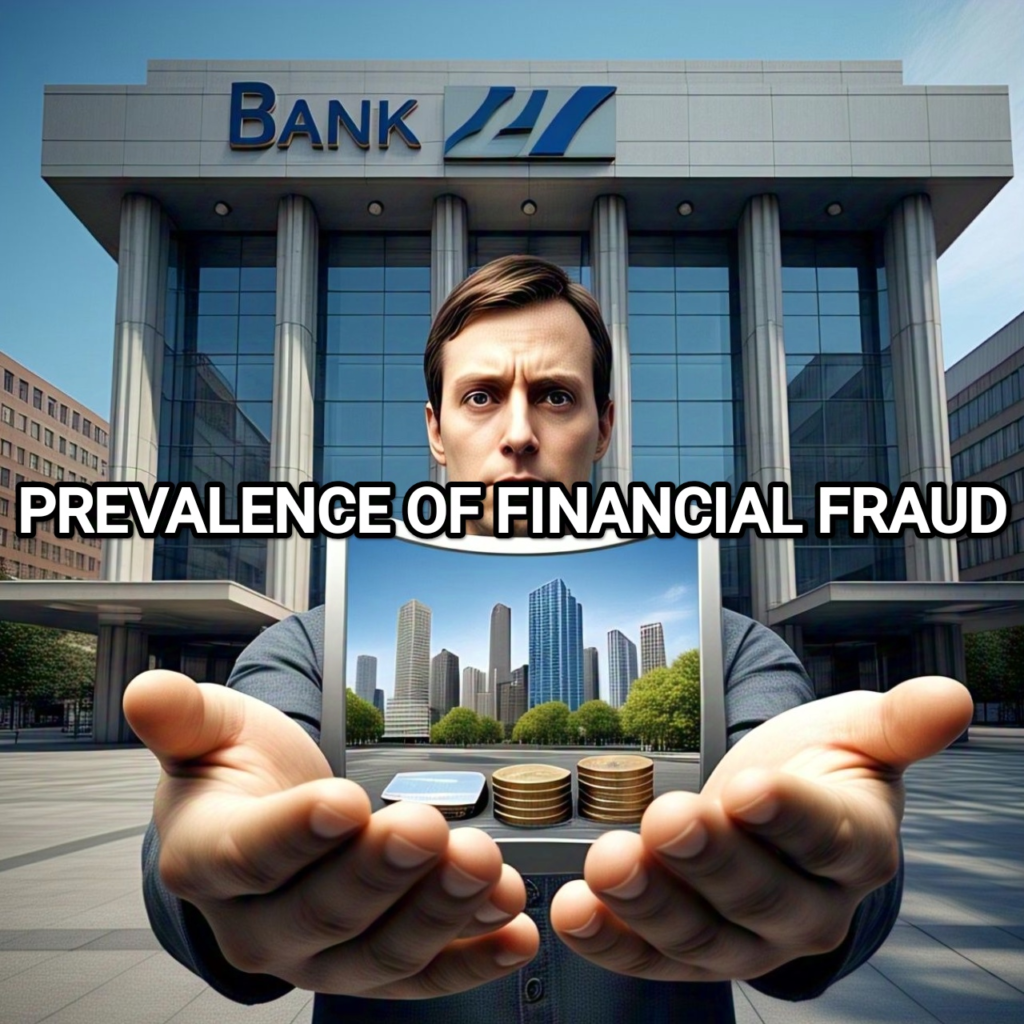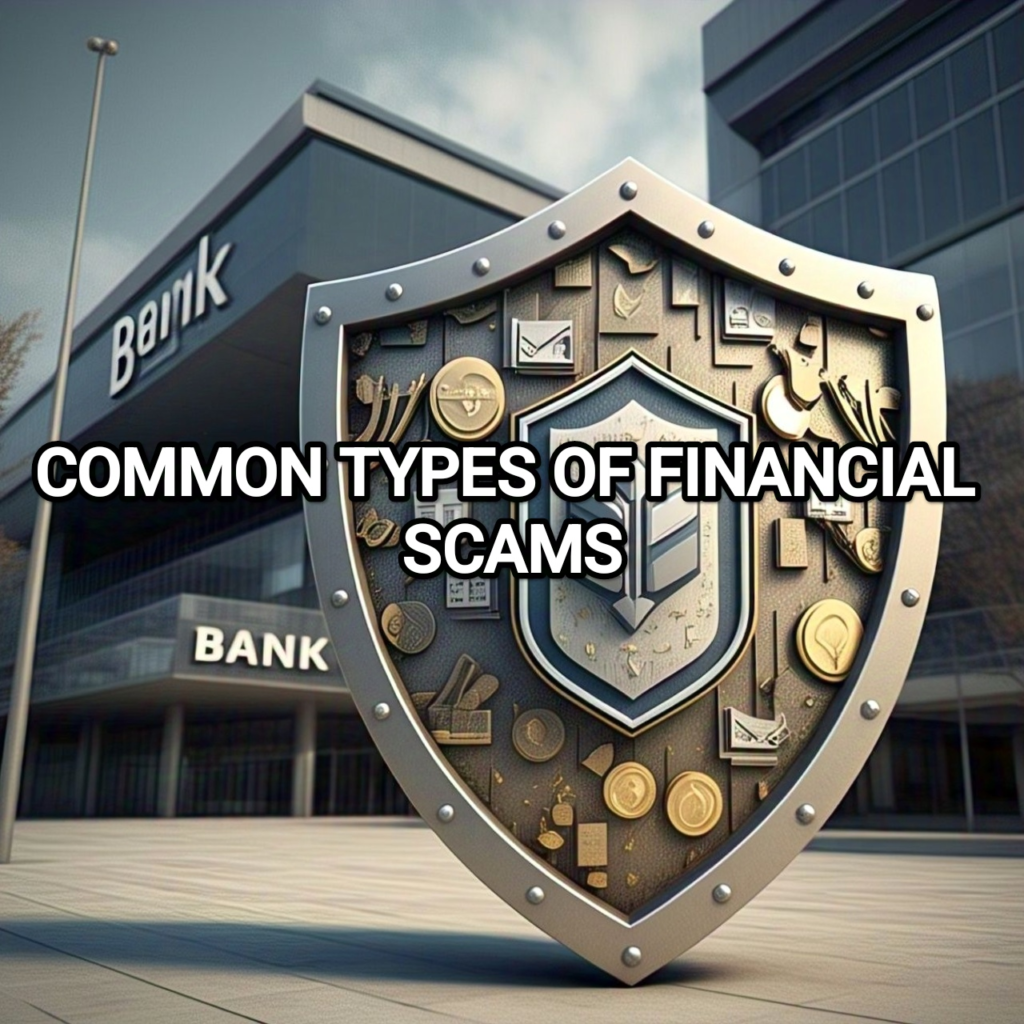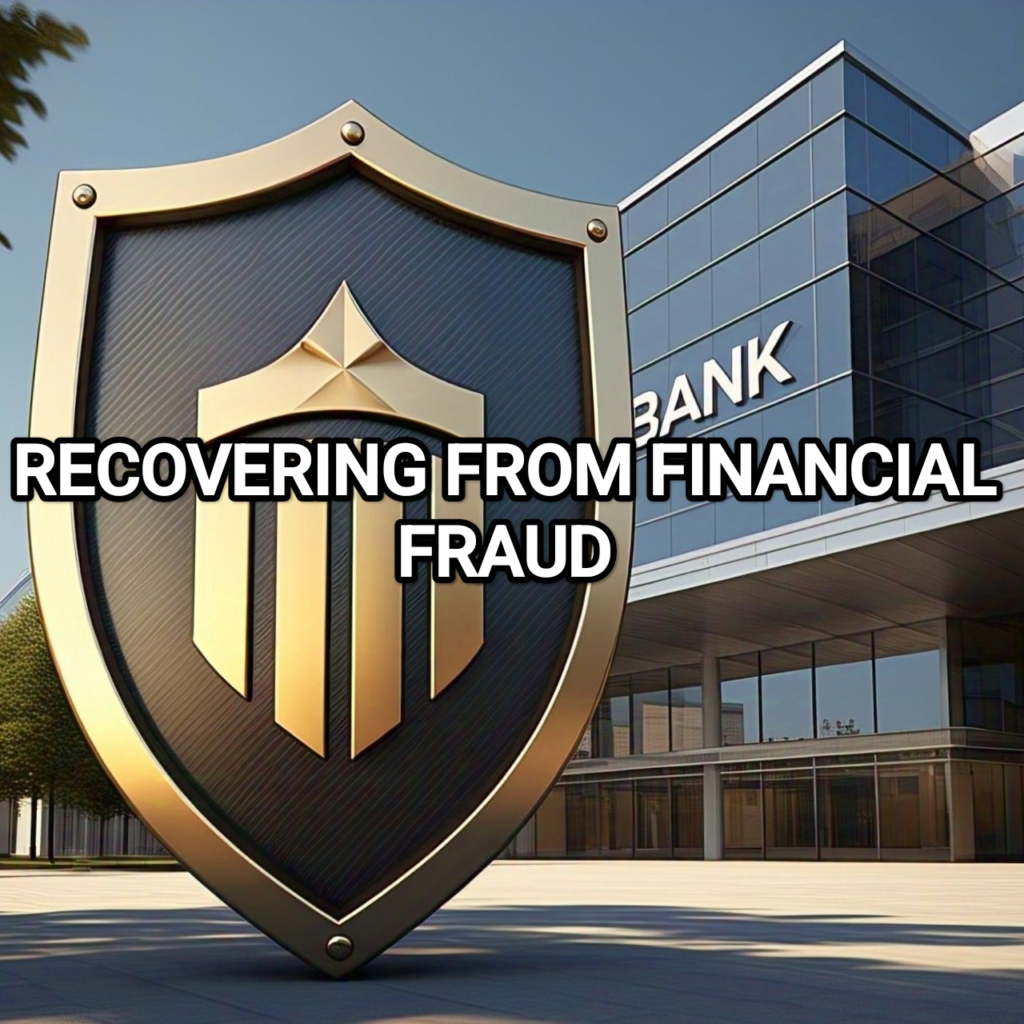MASTERING THE ART OF SHIELDING YOUR FINANCES FROM DEVASTATING FRAUD AND SCAMS
Master the art of shielding your finances from devastating fraud and scams with expert strategies and proven tips. Protect your hard-earned money from fraud and secure your financial future today. As a concerned individual, protecting your financial well-being is of utmost importance. With the rise of digital transactions and online banking, the risk of falling prey to fraud and scams has increased significantly. In this article, we will delve into the world of financial fraud, exploring the most common types of scams, and providing practical solutions to shield your finances. Whether you’re a resident of Ontario or seeking advice from a Canadian tax expert, this guide is designed to empower you with the knowledge to safeguard your financial future.
THE IMPORTANCE OF PROTECTING ONE’S FINANCES FROM FRAUD AND SCAMS

I. Financial Security and Stability
Protecting one’s finances from fraud and scams is crucial for maintaining financial security and stability. When individuals fall victim to financial fraud, they risk losing significant amounts of money, which can lead to financial hardship, stress, and anxiety. By taking proactive steps to shield their finances, individuals can ensure that their hard-earned money remains safe and secure.
II. Prevention of Identity Theft
Identity theft is a serious consequence of financial fraud, and protecting one’s finances is essential for preventing it. When individuals’ personal and financial information is stolen, they risk becoming victims of identity theft, which can lead to a range of problems, including damaged credit scores, financial loss, and emotional distress. By protecting their finances, individuals can reduce the risk of identity theft and the associated consequences.
III. Protection of Credit Score
A good credit score is essential for financial health, and protecting one’s finances is crucial for maintaining a positive credit score. When individuals fall victim to financial fraud, their credit score can be damaged, making it harder to obtain credit, loans, or mortgages in the future. By shielding their finances, individuals can protect their credit score and maintain good financial health.
IV. Reduced Risk of Financial Loss
Financial fraud can result in significant financial loss, and protecting one’s finances is essential for reducing this risk. By taking proactive steps to shield their finances, individuals can minimize the risk of financial loss and ensure that their money remains safe and secure.
V. Emotional Well-being
Financial fraud can cause significant emotional distress, including anxiety, stress, and depression. By protecting one’s finances, individuals can reduce the risk of emotional distress and maintain their emotional well-being.
VI. Protection of Personal Information
Protecting one’s finances also involves protecting personal information, including social security numbers, addresses, and phone numbers. When this information falls into the wrong hands, individuals risk becoming victims of identity theft and financial fraud. By shielding their finances, individuals can protect their personal information and reduce the risk of financial fraud.
VII. Maintenance of Financial Independence
Financial independence is essential for individuals’ financial well-being, and protecting one’s finances is crucial for maintaining it. When individuals fall victim to financial fraud, they risk losing their financial independence, which can lead to a range of problems, including reduced financial security and increased stress. By shielding their finances, individuals can maintain their financial independence and ensure that they remain in control of their financial decisions.
VIII. Protection of Retirement Savings
For individuals approaching retirement or already retired, protecting their finances is essential for safeguarding their retirement savings. When individuals fall victim to financial fraud, they risk losing a significant portion of their retirement savings, which can lead to financial hardship and reduced quality of life. By shielding their finances, individuals can protect their retirement savings and ensure that they have a secure and comfortable retirement.
IX. Reduced Risk of Tax-Related Fraud
Tax-related fraud is a growing concern, and protecting one’s finances is essential for reducing the risk of tax-related fraud. When individuals’ personal and financial information is stolen, they risk becoming victims of tax-related fraud, which can lead to financial loss and emotional distress. By shielding their finances, individuals can reduce the risk of tax-related fraud and ensure that their tax information remains safe and secure.
X. Importance of Vigilance
Finally, protecting one’s finances from fraud and scams requires vigilance and a proactive approach. Individuals must remain alert and aware of the risks of financial fraud and take steps to shield their finances. This includes regularly monitoring accounts, being cautious with emails and calls, and seeking professional advice when needed. By being vigilant and proactive, individuals can protect their finances and maintain their financial well-being.
PURPOSE AND SCOPE OF SHIELDING YOUR FINANCES FROM FRAUD AND SCAMS

PURPOSE OF SHIELDING YOUR FINANCES
The primary purpose of shielding your finances from fraud and scams is to protect your financial well-being and security. Financial fraud and scams can have devastating consequences, including financial loss, damaged credit scores, and emotional distress. By taking proactive steps to shield your finances, you can minimize the risk of falling victim to financial fraud and scams.
- Protecting Financial Assets
Shielding your finances involves protecting your financial assets, including your bank accounts, credit cards, investments, and retirement savings. By safeguarding these assets, you can ensure that your financial security and stability are maintained.
- Preventing Financial Loss
Another purpose of shielding your finances is to prevent financial loss. Financial fraud and scams can result in significant financial losses, which can be difficult to recover from. By taking steps to shield your finances, you can minimize the risk of financial loss and ensure that your financial well-being is protected.
- Maintaining Financial Independence
Shielding your finances also involves maintaining your financial independence. When you fall victim to financial fraud or scams, you risk losing control over your financial decisions. By shielding your finances, you can maintain your financial independence and ensure that you remain in control of your financial decisions.
- Reducing Stress And Anxiety
Finally, shielding your finances can help reduce stress and anxiety. Financial fraud and scams can be emotionally devastating, causing significant stress and anxiety. By taking proactive steps to shield your finances, you can minimize the risk of falling victim to financial fraud and scams, reducing your stress and anxiety levels.
SCOPE OF SHIELDING YOUR FINANCES
The scope of shielding your finances from fraud and scams is comprehensive and encompasses various aspects of financial security.
- Personal Financial Information
Shielding your finances involves protecting your personal financial information, including your social security number, address, phone number, and financial account numbers. This information is sensitive and can be used by fraudsters to commit financial crimes.
- Financial Accounts
The scope of shielding your finances also includes protecting your financial accounts, such as bank accounts, credit cards, investments, and retirement savings. These accounts are vulnerable to hacking, phishing, and other forms of cyber attacks.
- Financial Transactions
Shielding your finances involves monitoring and securing your financial transactions, including online transactions, mobile payments, and ATM withdrawals. These transactions can be vulnerable to interception, hacking, and other forms of cyber attacks.
- Financial Institutions
The scope of shielding your finances also includes working with reputable financial institutions that have robust security measures in place to protect your financial information and accounts.
- Financial Planning
Finally, shielding your finances involves creating a comprehensive financial plan that takes into account your financial goals, risk tolerance, and investment strategy. This plan can help you make informed financial decisions and minimize the risk of financial loss.
IMPORTANCE OF A PROACTIVE APPROACH
Shielding your finances from fraud and scams requires a proactive approach. This involves staying informed about the latest financial scams and frauds, monitoring your financial accounts and transactions regularly, and taking steps to protect your financial information and accounts.
- Role of Financial Institutions
Financial institutions play a critical role in shielding your finances from fraud and scams. They have a responsibility to protect your financial information and accounts, and to provide you with the tools and resources you need to shield your finances.
- Role of Government Agencies
Government agencies also play a critical role in shielding your finances from fraud and scams. They have a responsibility to regulate financial institutions, enforce laws and regulations related to financial fraud and scams, and provide consumers with information and resources to protect themselves.
- Role of Consumers
Finally, consumers play a critical role in shielding their finances from fraud and scams. They have a responsibility to stay informed about the latest financial scams and frauds, to monitor their financial accounts and transactions regularly, and to take steps to protect their financial information and accounts.
UNDERSTANDING THE LANDSCAPE OF FINANCIAL FRAUD
Financial fraud encompasses a broad range of deceptive activities, including identity theft, phishing, and investment scams. According to the Canadian Anti-Fraud Centre, in 2020, Canadians lost over $100 million to fraudsters. This staggering figure highlights the importance of being vigilant and proactive in protecting your finances.
PREVALENCE OF FINANCIAL FRAUD

Financial fraud is a widespread problem that affects millions of people around the world. According to a report by the Association of Certified Fraud Examiners (ACFE), the global economic loss due to financial fraud is estimated to be around $3.7 trillion annually.
TYPES OF FINANCIAL FRAUD
There are many types of financial fraud, including:
– Identity theft: 14.4 million people in the United States were victims of identity theft in 2019, resulting in losses of over $15 billion. (Source: Identity Theft Resource Center)
– Phishing scams: 32% of organizations in the United States experienced phishing attacks in 2020. (Source: Wombat Security)
– Investment scams: $10 billion was lost to investment scams in the United States in 2020. (Source: Securities and Exchange Commission)
– Credit card fraud: $24.71 billion was lost to credit card fraud worldwide in 2020. (Source: Nilson Report)
IMPACT OF FINANCIAL FRAUD
Financial fraud can have a significant impact on individuals, businesses, and the economy as a whole.
- Financial Losses
The financial losses due to financial fraud can be substantial. According to a report by the ACFE, the median loss due to financial fraud is $104,000.
- Emotional Distress
Financial fraud can also cause significant emotional distress. Victims of financial fraud may experience feelings of anxiety, depression, and stress.
- Damage to Credit Scores
Financial fraud can also damage credit scores. According to a report by the Federal Trade Commission (FTC), 1 in 5 victims of identity theft experienced damage to their credit scores.
- Business Impacts
Financial fraud can also have a significant impact on businesses. According to a report by the ACFE, 40% of businesses that experienced financial fraud reported a loss of customer trust.
DEMOGRAPHICS OF FINANCIAL FRAUD VICTIMS
Financial fraud can affect anyone, regardless of age, income, or education level. However, some demographics are more vulnerable to financial fraud than others.
- Age
Older adults are more vulnerable to financial fraud. According to a report by the FTC, adults aged 60 and older are more likely to report losing money to financial fraud.
- Income
Low-income individuals are also more vulnerable to financial fraud. According to a report by the National Consumers League, low-income individuals are more likely to be targeted by financial scammers.
- Education Level
Individuals with lower levels of education are also more vulnerable to financial fraud. According to a report by the FTC, individuals with a high school diploma or less are more likely to report losing money to financial fraud.
PREVENTION AND DETECTION OF FINANCIAL FRAUD
Preventing and detecting financial fraud requires a combination of education, awareness, and technology.
- Education and Awareness
Educating individuals about the risks and consequences of financial fraud is critical to preventing it. According to a report by the ACFE, 77% of organizations that experienced financial fraud reported that employee education and awareness programs were effective in preventing financial fraud.
- Technology
Technology can also play a critical role in preventing and detecting financial fraud. According to a report by the ACFE, 64% of organizations that experienced financial fraud reported that technology was effective in detecting financial fraud.
COMMON TYPES OF FINANCIAL SCAMS

1. Phishing Scams
Phishing scams are a type of financial scam where scammers send fake emails or texts that appear to be from a legitimate financial institution, such as a bank or credit union. The email or text may ask the victim to provide sensitive information, such as their login credentials or credit card number.
How to Avoid Phishing Scams
To avoid phishing scams, it’s essential to be cautious when receiving emails or texts that ask for sensitive information. Here are some tips:
– Verify the authenticity of the email or text by contacting the financial institution directly.
– Never provide sensitive information, such as login credentials or credit card numbers, via email or text.
– Be wary of emails or texts that create a sense of urgency, such as claiming that your account will be closed if you don’t take immediate action.
– Use two-factor authentication to add an extra layer of security to your online accounts.
2. Investment Scams
Investment scams are a type of financial scam where scammers promise unusually high returns on investments, often with little or no risk. These scams can take many forms, including Ponzi schemes, pyramid schemes, and fake investment opportunities.
How to Avoid Investment Scams
To avoid investment scams, it’s essential to do your research and be cautious of any investment opportunity that seems too good to be true. Here are some tips:
– Research the investment opportunity thoroughly, including the company’s history, financial statements, and management team.
– Be wary of investment opportunities that promise unusually high returns with little or no risk.
– Verify the investment opportunity with regulatory agencies, such as the Ontario Securities Commission.
– Never invest in an opportunity that you don’t fully understand.
3. Identity Theft Scams
Identity theft scams are a type of financial scam where scammers steal personal information, such as social insurance numbers, credit card numbers, or passwords, to commit financial crimes.
How to Avoid Identity Theft Scams
To avoid identity theft scams, it’s essential to protect your personal information and be cautious of any requests for sensitive information. Here are some tips:
– Protect your personal information by using strong passwords, keeping your computer and mobile device secure, and being cautious of public Wi-Fi networks.
– Be wary of requests for sensitive information, such as social insurance numbers or credit card numbers.
– Verify the authenticity of requests for personal information by contacting the organization directly.
– Monitor your credit report regularly to detect any suspicious activity.
4. Credit Card Scams
Credit card scams are a type of financial scam where scammers use stolen credit card information to make unauthorized purchases or steal sensitive information.
How to Avoid Credit Card Scams
To avoid credit card scams, it’s essential to protect your credit card information and be cautious of any requests for sensitive information. Here are some tips:
– Protect your credit card information by using a secure wallet or purse, keeping your credit card information confidential, and being cautious of public Wi-Fi networks.
– Be wary of requests for sensitive information, such as credit card numbers or expiration dates.
– Verify the authenticity of requests for credit card information by contacting the merchant directly.
– Monitor your credit card statement regularly to detect any suspicious activity.
5. Romance Scams
Romance scams are a type of financial scam where scammers create fake online profiles, build relationships with victims, and then ask for money or sensitive information.
How to Avoid Romance Scams
To avoid romance scams, it’s essential to be cautious when meeting people online and to verify the authenticity of online profiles. Here are some tips:
– Be cautious when meeting people online, especially if they are from another country or are asking for money or sensitive information.
– Verify the authenticity of online profiles by researching the person’s name, email address, and social media profiles.
– Be wary of requests for money or sensitive information, especially if you have not met the person in person.
– Never send money or sensitive information to someone you have met online.
6. Lottery and Prize Scams
Lottery and prize scams are a type of financial scam where scammers contact victims with the news that they have won a lottery or prize, but need to pay a fee or provide sensitive information to claim their prize.
How to Avoid Lottery and Prize Scams
To avoid lottery and prize scams, it’s essential to be cautious of unsolicited emails or phone calls, and to verify the authenticity of lottery or prize wins. Here are some tips:
– Be cautious of unsolicited emails or phone calls that claim you have won a lottery or prize.
– Verify the authenticity of lottery or prize wins by contacting the lottery or prize organization directly.
– Be wary of requests for fees or sensitive information to claim a prize.
– Never provide sensitive information or pay a fee to claim a prize.
7. Tax Scams
Tax scams are a type of financial scam where scammers pose as tax authorities, such as the Canada Revenue Agency (CRA), and demand payment or sensitive information.
How to Avoid Tax Scams
To avoid tax scams, it’s essential to be cautious of unsolicited phone calls or emails that claim to be from tax authorities. Here are some tips:
– Verify the authenticity of tax-related communications by contacting the CRA directly.
– Be wary of requests for payment or sensitive information via phone or email.
– Never provide sensitive information, such as your social insurance number or credit card information, to someone who claims to be from the CRA.
– Keep in mind that the CRA will never ask for payment via gift cards, prepaid credit cards, or cryptocurrency.
8. Online Shopping Scams
Online shopping scams are a type of financial scam where scammers create fake online stores or pose as legitimate sellers on online marketplaces.
How to Avoid Online Shopping Scams
To avoid online shopping scams, it’s essential to be cautious when shopping online. Here are some tips:
– Research the online store or seller before making a purchase.
– Verify the authenticity of the online store or seller by checking for reviews, ratings, and contact information.
– Be wary of prices that are significantly lower than those offered by legitimate sellers.
– Never provide sensitive information, such as your credit card information or personal identification numbers, to an unverified online seller.
9. Cryptocurrency Scams
Cryptocurrency scams are a type of financial scam where scammers pose as legitimate cryptocurrency traders or investors.
How to Avoid Cryptocurrency Scams
To avoid cryptocurrency scams, it’s essential to be cautious when investing in cryptocurrencies. Here are some tips:
– Research the cryptocurrency and the trader or investor before investing.
– Verify the authenticity of the cryptocurrency and the trader or investor by checking for reviews, ratings, and contact information.
– Be wary of investment opportunities that promise unusually high returns with little or no risk.
– Never provide sensitive information, such as your credit card information or personal identification numbers, to an unverified cryptocurrency trader or investor.
10. Home Repair Scams
Home repair scams are a type of financial scam where scammers pose as legitimate home repair contractors.
How to Avoid Home Repair Scams
To avoid home repair scams, it’s essential to be cautious when hiring home repair contractors. Here are some tips:
– Research the contractor and their company before hiring.
– Verify the authenticity of the contractor and their company by checking for reviews, ratings, and contact information.
– Be wary of contractors who demand payment upfront or who promise unusually low prices.
– Never provide sensitive information, such as your credit card information or personal identification numbers, to an unverified contractor.
By being aware of these common types of financial scams, you can take steps to protect yourself and your finances. Remember to always be cautious when providing sensitive information or making financial transactions, and to verify the authenticity of individuals or companies before doing business with them.
PRACTICAL SOLUTIONS TO SHIELD YOUR FINANCES

1. Monitor Your Accounts Regularly
Monitoring your accounts regularly is one of the most effective ways to shield your finances from fraud and scams. This includes:
– Checking your bank and credit card statements regularly for any suspicious transactions.
– Setting up account alerts to notify you of any unusual activity.
– Using online banking and mobile banking apps to keep track of your accounts in real-time.
By monitoring your accounts regularly, you can quickly identify any suspicious activity and take action to prevent further fraud.
2. Use Strong Passwords and Two-Factor Authentication
Using strong passwords and two-factor authentication is essential for shielding your finances from fraud and scams. This includes:
– Using unique and complex passwords for all of your financial accounts.
– Enabling two-factor authentication (2FA) whenever possible.
– Using a password manager to generate and store unique and complex passwords.
By using strong passwords and 2FA, you can make it much more difficult for hackers and scammers to access your financial accounts.
3. Keep Your Computer and Mobile Device Secure
Keeping your computer and mobile device secure is critical for shielding your finances from fraud and scams. This includes:
– Installing anti-virus software and keeping it up-to-date.
– Using a firewall to block unauthorized access to your device.
– Keeping your operating system and software up-to-date with the latest security patches.
By keeping your computer and mobile device secure, you can prevent hackers and scammers from accessing your financial information and accounts.
4. Be Cautious with Emails and Phone Calls
Being cautious with emails and phone calls is essential for shielding your finances from fraud and scams. This includes:
– Being wary of unsolicited emails and phone calls that ask for financial information or personal identification numbers.
– Verifying the authenticity of emails and phone calls by contacting the company or organization directly.
– Never providing financial information or personal identification numbers via email or phone.
By being cautious with emails and phone calls, you can prevent scammers from tricking you into providing sensitive financial information.
5. Use a Secure Internet Connection
Using a secure internet connection is critical for shielding your finances from fraud and scams. This includes:
– Using a virtual private network (VPN) when accessing public Wi-Fi networks.
– Avoiding public computers and public Wi-Fi networks for sensitive financial transactions.
– Using a secure internet connection at home, such as a wired connection or a secure wireless connection.
By using a secure internet connection, you can prevent hackers and scammers from intercepting your financial information and accounts.
6. Keep Your Financial Information Private
Keeping your financial information private is essential for shielding your finances from fraud and scams. This includes:
– Keeping your financial documents and records in a secure location.
– Shredding financial documents and records when they are no longer needed.
– Being cautious when sharing financial information with others.
By keeping your financial information private, you can prevent scammers from accessing your sensitive financial information.
7. Use a Credit Monitoring Service
Using a credit monitoring service is a great way to shield your finances from fraud and scams. This includes:
– Signing up for a credit monitoring service that alerts you to any changes to your credit report.
– Monitoring your credit report regularly for any suspicious activity.
– Disputing any errors or inaccuracies on your credit report.
By using a credit monitoring service, you can quickly identify any suspicious activity on your credit report and take action to prevent further fraud.
8. Avoid Using Public Computers for Sensitive Financial Transactions
Avoiding the use of public computers for sensitive financial transactions is essential for shielding your finances from fraud and scams. This includes:
– Avoiding the use of public computers at libraries, internet cafes, and other public locations.
– Using a secure computer or mobile device for sensitive financial transactions.
– Being cautious when using public computers for any financial transactions.
By avoiding the use of public computers for sensitive financial transactions, you can prevent hackers and scammers from accessing your financial information and accounts.
9. Keep Your Software Up-to-Date
Keeping your software up-to-date is critical for shielding your finances from fraud and scams. This includes:
– Keeping your operating system, browser, and other software up-to-date with the latest security patches.
– Installing anti-virus software and keeping it up-to-date.
– Being cautious when downloading and installing software from unknown sources.
By keeping your software up-to-date, you can prevent hackers and scammers from exploiting vulnerabilities in your software.
10. Seek Professional Advice
Seeking professional advice is a great way to shield your finances from fraud and scams. This includes:
– Consulting with a financial advisor or accountant for advice on managing your finances.
– Seeking the advice of a credit counselor or debt management company if you are struggling with debt.
– Consulting with a lawyer or law enforcement agency if you are a victim of financial fraud or scams.
By seeking professional advice, you can get the guidance and support you need to shield your finances from fraud and scams.
SEEKING PROFESSIONAL ADVICE

Here are some ways to seek professional advice to shield your finances from fraud and scams:
Financial advisors are professionals who can provide guidance on managing your finances, including investments, retirement planning, and estate planning. They can also help you develop a plan to shield your finances from fraud and scams.
Benefits of Working with a Financial Advisor
Working with a financial advisor can provide several benefits, including:
– Expert guidance: Financial advisors have extensive knowledge and experience in managing finances and can provide expert guidance on how to shield your finances from fraud and scams.
– Personalized advice: Financial advisors can provide personalized advice tailored to your specific financial situation and goals.
– Access to a range of financial products: Financial advisors often have access to a range of financial products, including investments, insurance, and retirement plans.
How to Find a Financial Advisor
To find a financial advisor, you can:
– Ask for referrals from friends, family, or colleagues.
– Check with professional organizations, such as the Financial Planning Standards Council (FPSC) or the Canadian Institute of Financial Planning (CIFP).
– Check online directories, such as the Financial Advisor Directory.
2. CREDIT COUNSELORS
Credit counselors are professionals who can provide guidance on managing debt and improving credit scores. They can also help you develop a plan to shield your finances from fraud and scams.
Benefits of Working with a Credit Counselor
Working with a credit counselor can provide several benefits, including:
– Expert guidance: Credit counselors have extensive knowledge and experience in managing debt and can provide expert guidance on how to shield your finances from fraud and scams.
– Personalized advice: Credit counselors can provide personalized advice tailored to your specific financial situation and goals.
– Access to debt management plans: Credit counselors can help you develop a debt management plan that can help you pay off debt and improve your credit score.
How to Find a Credit Counselor
To find a credit counselor, you can:
– Ask for referrals from friends, family, or colleagues.
– Check with professional organizations, such as the Credit Counseling Canada or the Financial Consumer Agency of Canada (FCAC).
– Check online directories, such as the Credit Counselor Directory.
3. LAWYERS
Lawyers are professionals who can provide guidance on legal matters related to financial fraud and scams. They can also help you develop a plan to shield your finances from fraud and scams.
Benefits of Working with a Lawyer
Working with a lawyer can provide several benefits, including:
– Expert guidance: Lawyers have extensive knowledge and experience in legal matters related to financial fraud and scams and can provide expert guidance on how to shield your finances.
– Personalized advice: Lawyers can provide personalized advice tailored to your specific financial situation and goals.
– Representation in court: Lawyers can represent you in court if you are a victim of financial fraud or scams.
How to Find a Lawyer
To find a lawyer, you can:
– Ask for referrals from friends, family, or colleagues.
– Check with professional organizations, such as the Law Society of Ontario or the Canadian Bar Association.
– Check online directories, such as the Lawyer Directory.
4. ACCOUNTANTS
Accountants are professionals who can provide guidance on financial matters related to financial fraud and scams. They can also help you develop a plan to shield your finances from fraud and scams.
Benefits of Working with an Accountant
Working with an accountant can provide several benefits, including:
– Expert guidance: Accountants have extensive knowledge and experience in financial matters related to financial fraud and scams and can provide expert guidance on how to shield your finances.
– Personalized advice: Accountants can provide personalized advice tailored to your specific financial situation and goals.
– Assistance with tax planning: Accountants can assist with tax planning and ensure that you are taking advantage of all available tax deductions and credits.
How to Find an Accountant
To find an accountant, you can:
– Ask for referrals from friends, family, or colleagues.
– Check with professional organizations, such as the Canadian Institute of Chartered Accountants (CICA) or the Institute of Chartered Accountants of Ontario (ICAO).
– Check online directories, such as the Accountant Directory.
Financial planners are professionals who can provide guidance on financial matters related to financial fraud and scams. They can also help you develop a plan to shield your finances from fraud and scams.
Benefits of Working with a Financial Planner
Working with a financial planner can provide several benefits, including:
– Expert guidance: Financial planners have extensive knowledge and experience in financial matters related to financial fraud and scams and can provide expert guidance on how to shield your finances.
– Personalized advice: Financial planners can provide personalized advice tailored to your specific financial situation and goals.
– Comprehensive financial planning: Financial planners can assist with comprehensive financial planning, including investment planning, retirement planning, and estate planning.
How to Find a Financial Planner
To find a financial planner, you can:
– Ask for referrals from friends, family, or colleagues.
– Check with professional organizations, such as the Financial Planning Standards Council (FPSC) or the Canadian Institute of Financial Planning (CIFP).
– Check online directories, such as the Financial Planner Directory.
6. CREDIT REPORTING AGENCIES
Credit reporting agencies are organizations that collect and maintain information about your credit history. They can provide you with a copy of your credit report and help you identify any errors or inaccuracies.
Benefits of Working with a Credit Reporting Agency
Working with a credit reporting agency can provide several benefits, including:
– Access to your credit report: Credit reporting agencies can provide you with a copy of your credit report, which can help you identify any errors or inaccuracies.
– Credit monitoring: Credit reporting agencies can provide credit monitoring services, which can alert you to any changes to your credit report.
– Identity theft protection: Credit reporting agencies can provide identity theft protection services, which can help you protect your personal and financial information.
How to Find a Credit Reporting Agency
To find a credit reporting agency, you can:
– Check with the two major credit reporting agencies in Canada, Equifax and TransUnion.
– Check online directories, such as the Credit Reporting Agency Directory.
7. FINANCIAL REGULATORY AGENCIES
Financial regulatory agencies are organizations that oversee and regulate financial institutions and financial markets. They can provide you with information and guidance on how to shield your finances from fraud and scams.
Benefits of Working with a Financial Regulatory Agency
Working with a financial regulatory agency can provide several benefits, including:
– Information and guidance: Financial regulatory agencies can provide you with information and guidance on how to shield your finances from fraud and scams.
– Oversight and regulation: Financial regulatory agencies can oversee and regulate financial institutions and financial markets, which can help prevent financial fraud and scams.
– Complaint resolution: Financial regulatory agencies can assist with resolving complaints against financial institutions and financial markets.
How to Find a Financial Regulatory Agency
To find a financial regulatory agency, you can:
– Check with the Financial Consumer Agency of Canada (FCAC) or the Ontario Securities Commission (OSC).
– Check online directories, such as the Financial Regulatory Agency Directory.
8. NON-PROFIT ORGANIZATIONS
Non-profit organizations are organizations that provide information, guidance, and support to individuals who have been affected by financial fraud and scams.
Benefits of Working with a Non-Profit Organization
Working with a non-profit organization can provide several benefits, including:
– Information and guidance: Non-profit organizations can provide you with information and guidance on how to shield your finances from fraud and scams.
– Support and counseling: Non-profit organizations can provide support and counseling to individuals who have been affected by financial fraud and scams.
– Advocacy: Non-profit organizations can advocate on behalf of individuals who have been affected by financial fraud and scams.
How to Find a Non-Profit Organization
To find a non-profit organization, you can:
– Check with the Canadian Anti-Fraud Centre or the Financial Consumer Agency of Canada (FCAC).
– Check online directories, such as the Non-Profit Organization Directory.
9. LAW ENFORCEMENT AGENCIES
Law enforcement agencies are organizations that investigate and prosecute financial fraud and scams.
Benefits of Working with a Law Enforcement Agency
Working with a law enforcement agency can provide several benefits, including:
– Investigation and prosecution: Law enforcement agencies can investigate and prosecute financial fraud and scams.
– Support and guidance: Law enforcement agencies can provide support and guidance to individuals who have been affected by financial fraud and scams.
– Prevention: Law enforcement agencies can provide information and guidance on how to prevent financial fraud and scams.
How to Find a Law Enforcement Agency
To find a law enforcement agency, you can:
– Check with the Royal Canadian Mounted Police (RCMP) or the Ontario Provincial Police (OPP).
– Check online directories, such as the Law Enforcement Agency Directory.
10. FINANCIAL INSTITUTIONS
Financial institutions are organizations that provide financial services, such as banking, investing, and insurance.
Benefits of Working with a Financial Institution
Working with a financial institution can provide several benefits, including:
– Financial services: Financial institutions can provide a range of financial services, including banking, investing, and insurance.
– Support and guidance: Financial institutions can provide support and guidance on how to manage your finances and shield your finances from fraud and scams.
– Security: Financial institutions can provide secure and reliable financial services, including online banking and mobile banking.
How to Find a Financial Institution
To find a financial institution, you can:
– Check with banks, credit unions, and other financial institutions in your area.
– Check online directories, such as the Financial Institution Directory.
– Ask for referrals from friends, family, or colleagues.
11. INSURANCE COMPANIES
Insurance companies are organizations that provide insurance services, such as life insurance, health insurance, and property insurance.
Benefits of Working with an Insurance Company
Working with an insurance company can provide several benefits, including:
– Financial protection: Insurance companies can provide financial protection against unexpected events, such as illness, injury, or property damage.
– Support and guidance: Insurance companies can provide support and guidance on how to manage your finances and shield your finances from fraud and scams.
– Risk management: Insurance companies can help you manage risk and protect your finances against unexpected events.
How to Find an Insurance Company
To find an insurance company, you can:
– Check with insurance companies in your area.
– Check online directories, such as the Insurance Company Directory.
– Ask for referrals from friends, family, or colleagues.
12. FINANCIAL PLANNING ASSOCIATIONS
Financial planning associations are organizations that provide financial planning services, such as investment planning, retirement planning, and estate planning.
Benefits of Working with a Financial Planning Association
Working with a financial planning association can provide several benefits, including:
– Expert guidance: Financial planning associations can provide expert guidance on how to manage your finances and shield your finances from fraud and scams.
– Comprehensive financial planning: Financial planning associations can provide comprehensive financial planning services, including investment planning, retirement planning, and estate planning.
– Access to financial resources: Financial planning associations can provide access to financial resources, such as investment products and insurance services.
How to Find a Financial Planning Association
To find a financial planning association, you can:
– Check with financial planning associations in your area.
– Check online directories, such as the Financial Planning Association Directory.
– Ask for referrals from friends, family, or colleagues.
By seeking professional advice from these organizations, you can get the guidance and support you need to shield your finances from fraud and scams.
RECOVERING FROM FINANCIAL FRAUD

Recovering from financial fraud can be a challenging and time-consuming process, but there are steps you can take to minimize the damage and get back on track financially. Here are some steps to consider:
1. Report the Fraud
The first step in recovering from financial fraud is to report the incident to the relevant authorities. This may include:
– Contacting your bank or credit card company to report any suspicious transactions or accounts.
– Filing a police report to document the incident and provide a paper trail.
– Reporting the incident to the Canadian Anti-Fraud Centre or other relevant agencies.
Reporting the fraud can help prevent further unauthorized transactions and provide valuable information to investigators.
2. Freeze Your Accounts
Freezing your accounts can help prevent further unauthorized transactions and give you time to assess the situation and take corrective action. This may include:
– Contacting your bank or credit card company to freeze your accounts and prevent any further transactions.
– Placing a fraud alert on your credit reports to prevent any new accounts from being opened in your name.
Freezing your accounts can help minimize the damage and prevent further financial losses.
3. Assess the Damage
Assessing the damage can help you understand the extent of the financial fraud and take corrective action. This may include:
– Reviewing your account statements and transaction history to identify any suspicious transactions.
– Contacting your bank or credit card company to determine the extent of the unauthorized transactions.
– Assessing any damage to your credit score or reputation.
Assessing the damage can help you develop a plan to recover from the financial fraud and prevent similar incidents in the future.
4. Dispute Unauthorized Transactions
Disputing unauthorized transactions can help you recover any losses and prevent further financial damage. This may include:
– Contacting your bank or credit card company to dispute any unauthorized transactions.
– Providing documentation and evidence to support your dispute.
– Working with the bank or credit card company to resolve the dispute and recover any losses.
Disputing unauthorized transactions can help you recover any losses and prevent further financial damage.
5. Monitor Your Credit Reports
Monitoring your credit reports can help you detect any suspicious activity and prevent further financial damage. This may include:
– Obtaining a copy of your credit report from the major credit reporting agencies.
– Reviewing your credit report for any errors or suspicious activity.
– Disputing any errors or suspicious activity with the credit reporting agency.
Monitoring your credit reports can help you detect any suspicious activity and prevent further financial damage.
6. Seek Professional Advice
Seeking professional advice can help you recover from financial fraud and prevent similar incidents in the future. This may include:
– Consulting with a financial advisor or credit counselor to develop a plan to recover from the financial fraud.
– Working with a lawyer or other professional to dispute unauthorized transactions and recover any losses.
– Seeking guidance from a credit reporting agency or other organization to monitor your credit reports and prevent further financial damage.
Seeking professional advice can help you recover from financial fraud and prevent similar incidents in the future.
7. Take Steps to Prevent Future Fraud
Taking steps to prevent future fraud can help you avoid similar incidents in the future. This may include:
– Implementing strong security measures, such as two-factor authentication and encryption.
– Monitoring your accounts and credit reports regularly for any suspicious activity.
– Avoiding phishing scams and other types of financial fraud.
– Keeping your personal and financial information private and secure.
Taking steps to prevent future fraud can help you avoid similar incidents in the future.
8. Consider a Credit Monitoring Service
Considering a credit monitoring service can help you detect any suspicious activity and prevent further financial damage. This may include:
– Signing up for a credit monitoring service that alerts you to any changes to your credit report.
– Working with a credit monitoring service to dispute any errors or suspicious activity on your credit report.
– Using a credit monitoring service to monitor your credit reports and prevent further financial damage.
Considering a credit monitoring service can help you detect any suspicious activity and prevent further financial damage.
9. Keep Records and Documentation
Keeping records and documentation can help you track any suspicious activity and provide evidence in case of a dispute. This may include:
– Keeping records of any suspicious transactions or activity on your accounts.
– Documenting any communications with your bank or credit card company.
– Keeping records of any disputes or resolutions.
Keeping records and documentation can help you track any suspicious activity and provide evidence in case of a dispute.
10. Stay Informed and Educated
Staying informed and educated can help you avoid financial fraud and scams. This may include:
– Staying up-to-date on the latest financial fraud and scam tactics.
– Educating yourself on how to protect your personal and financial information.
– Staying informed about any changes to financial regulations or laws.
Staying informed and educated can help you avoid financial fraud and scams.
FREQUENTLY ASKED QUESTIONS
Q1: What is financial fraud?
A: Financial fraud refers to any intentional deception or misrepresentation that results in financial loss or damage.
Q2: How can I protect myself from financial fraud?
A: You can protect yourself from financial fraud by being cautious with personal and financial information, monitoring your accounts regularly, and being aware of common scams and tactics.
Q3: What are some common types of financial scams?
A: Some common types of financial scams include phishing scams, identity theft, investment scams, and credit card scams.
Q4: How can I avoid phishing scams?
A: You can avoid phishing scams by being cautious with emails and phone calls that ask for personal or financial information, verifying the authenticity of requests, and not clicking on suspicious links or attachments.
Q5: What should I do if I suspect I’ve been a victim of financial fraud?
A: If you suspect you’ve been a victim of financial fraud, you should contact your bank or credit card company immediately, report the incident to the authorities, and seek professional advice from a financial advisor or credit counselor.
Q6: How can I monitor my credit reports for suspicious activity?
A: You can monitor your credit reports for suspicious activity by obtaining a copy of your credit report from the major credit reporting agencies, reviewing your report regularly, and disputing any errors or suspicious activity.
Q7: What is two-factor authentication, and how can it help protect my finances?
A: Two-factor authentication is a security process that requires two forms of verification, such as a password and a code sent to your phone, to access an account or system. It can help protect your finances by adding an extra layer of security and making it more difficult for hackers and scammers to access your accounts.
Q8: How can I avoid investment scams?
A: You can avoid investment scams by researching investment opportunities thoroughly, verifying the authenticity of investment offers, and being cautious of investments that promise unusually high returns with little or no risk.
Q9: What should I do if I receive a suspicious phone call or email?
A: If you receive a suspicious phone call or email, you should be cautious and not provide any personal or financial information. You should also verify the authenticity of the request and report it to the authorities if necessary.
Q10: How can I stay informed about financial fraud and scams?
A: You can stay informed about financial fraud and scams by staying up-to-date on the latest news and alerts, following reputable sources and organizations, and educating yourself on common scams and tactics.
THINGS TO AVOID

1. Avoid Giving Out Personal Information
Avoid giving out personal information, such as your social insurance number, credit card numbers, or passwords, to anyone who contacts you unsolicited. Legitimate organizations will not ask for this information via email, phone, or text.
2. Avoid Clicking on Suspicious Links
Avoid clicking on suspicious links or attachments from unsolicited emails or messages. These links can lead to phishing websites or download malware onto your device.
3. Avoid Using Public Computers or Wi-Fi
Avoid using public computers or Wi-Fi networks to access sensitive financial information. Public computers and Wi-Fi networks may not be secure, and your information could be intercepted by hackers.
4. Avoid Using Weak Passwords
Avoid using weak passwords or using the same password for multiple accounts. Use strong, unique passwords for each account, and consider using a password manager to keep track of them.
5. Avoid Ignoring Security Alerts
Avoid ignoring security alerts or warnings from your bank, credit card company, or other financial institutions. These alerts can indicate suspicious activity on your account, and ignoring them can lead to financial losses.
6. Avoid Sending Money to Unverified Recipients
Avoid sending money to unverified recipients, especially if you have not met them in person. Scammers may use fake profiles or emails to trick you into sending money.
7. Avoid Investing in Unverified Opportunities
Avoid investing in unverified opportunities or schemes that promise unusually high returns with little or no risk. These opportunities may be scams, and you could lose your investment.
8. Avoid Providing Financial Information to Unverified Sources
Avoid providing financial information to unverified sources, such as unsolicited phone calls or emails. Legitimate organizations will not ask for financial information via unsolicited contacts.
9. Avoid Using Outdated Software or Operating Systems
Avoid using outdated software or operating systems, as they may not have the latest security patches or updates. This can leave your device vulnerable to hacking and malware.
10. Avoid Being Pressured into Making Financial Decisions
Avoid being pressured into making financial decisions, especially if you are unsure or uncomfortable. Take your time, and seek advice from trusted financial professionals or advisors.
11. Avoid Using Unsecured Websites
Avoid using unsecured websites or websites that do not have “https” in the URL. Unsecured websites may not encrypt your data, leaving it vulnerable to interception by hackers.
12. Avoid Responding to Unsolicited Offers
Avoid responding to unsolicited offers or promotions, especially if they require you to provide financial information or send money. Legitimate organizations will not make unsolicited offers or promotions.
13. Avoid Using Public ATMs or Payment Terminals
Avoid using public ATMs or payment terminals, especially if they appear tampered with or have unusual attachments. Scammers may install skimmers or other devices to steal your financial information.
14. Avoid Sharing Financial Information on Social Media
Avoid sharing financial information on social media, such as your account numbers, credit card numbers, or financial passwords. Scammers may use this information to steal your identity or commit financial fraud.
15. Avoid Being Overconfident in Your Ability to Spot Scams
Avoid being overconfident in your ability to spot scams. Scammers are becoming increasingly sophisticated, and even the most cautious individuals can fall victim to financial fraud. Stay vigilant and take steps to protect yourself.
CONCLUSION
Shielding your finances from fraud and scams requires a proactive and informed approach. By understanding the common types of financial scams, implementing practical solutions, and seeking professional advice when needed, you can significantly reduce the risk of falling victim to financial fraud. Remember to stay vigilant, monitor your accounts regularly, and never provide sensitive information in response to unsolicited requests.
CALL TO ACTION
If you’re concerned about protecting your finances or have questions about shielding your finances from fraud and scams, book a consultation with a financial advisor in Ontario or a Canada tax expert today.
To shield your finances from fraud and scams, take the following steps:
1. Stay informed: Stay up-to-date on the latest financial scams and tactics.
2. Protect your personal and financial information: Be cautious with sensitive information, use strong passwords, and enable two-factor authentication.
3. Monitor your accounts regularly: Regularly review your account statements and transaction history.
4. Be cautious of suspicious requests: Be wary of unsolicited requests for personal or financial information.
5. Seek professional advice: Consult with a financial advisor or credit counselor if you suspect you’ve been a victim of financial fraud or scams.
By taking these steps, you can shield your finances from fraud and scams and protect your financial well-being.
ABOUT AUTHOR
Shanel John is a dedicated Certified Public Accountant (CPA) at G.L.H. Accounting, specializing in Income Tax with 10 years of experience. Based in Brampton, Ontario, Canada, Shanel offers expertise in tax preparation, financial accounting, and advisory services. A certified QBO Pro Advisor, Shanel’s decade-long experience and knowledge make her a trusted figure in the accounting field.
ADDITIONAL RESOURCES
For more information on shielding your finances from fraud and scams, visit:
– The Canadian Anti-Fraud Centre (CAFC): https://www.canada.ca/en/revenue-agency/campaigns/fraud-scams.html
– The Financial Consumer Agency of Canada (FCAC): https://www.canada.ca/en/financial-consumer-agency.html
– The Credit Counselling Canada (CCC): https://ised-isde.canada.ca/site/office-consumer-affairs/en/consumer-interest-groups/contributions-program/contributions-program-non-profit-consumer-and-voluntary-organizations-awarded-amounts-and-funded/2021-23-project-summaries-credit-counselling-canada-ccc
Remember, shielding your finances from fraud and scams requires ongoing vigilance and attention. By staying informed, protecting your personal and financial information, and monitoring your accounts regularly, you can significantly reduce the risk of financial fraud and scams.

